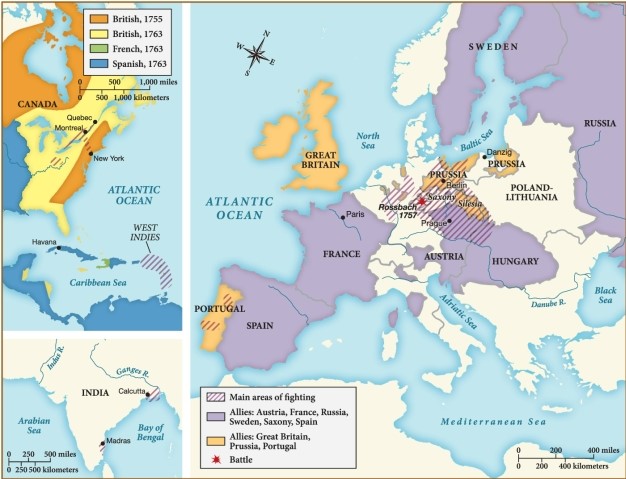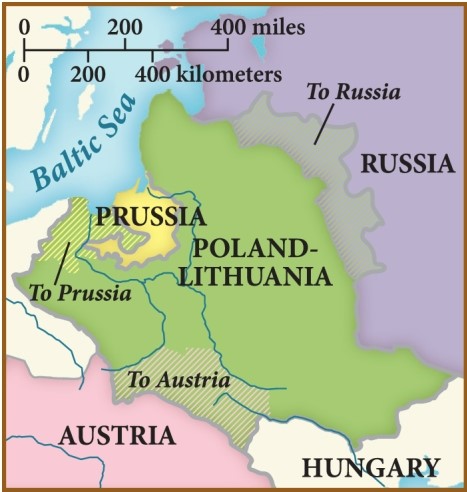Exam 18: The Promise of Enlightenment, 1750-1789
Exam 1: Early Western Civilization, 400,000-1000 B.C.E65 Questions
Exam 2: Near East Empires and the Reemergence of Civilization in Greece, 1000-500 B.C.E64 Questions
Exam 3: The Greek Golden Age, C 500-C 400 B.C.E65 Questions
Exam 4: From the Classical to the Hellenistic World, 400-30 B.C.E65 Questions
Exam 5: The Rise of Rome and Its Republic, 753-44 B.C.E64 Questions
Exam 6: The Creation of the Roman Empire, 44 B.C.E-284 C.E65 Questions
Exam 7: The Transformation of the Roman Empire, 284-600 C.E64 Questions
Exam 8: The Heirs of Rome: Islam, Byzantium, and Europe, 600-75065 Questions
Exam 9: From Centralization to Fragmentation, 750-105065 Questions
Exam 10: Commercial Quickening and Religious Reform, 1050-115065 Questions
Exam 11: The Flowering of the Middle Ages, 1150-121565 Questions
Exam 12: The Medieval Synthesis and Its Cracks, 1215-134065 Questions
Exam 13: Crisis and Renaissance, 1340-149265 Questions
Exam 14: Global Encounters and the Shock of the Reformation, 1492-156065 Questions
Exam 15: Wars of Religion and the Clash of Worldviews, 1560-164865 Questions
Exam 16: Absolutism, Constitutionalism, and the Search for Order, 1640-170065 Questions
Exam 17: The Atlantic System and Its Consequences, 1700-175065 Questions
Exam 18: The Promise of Enlightenment, 1750-178965 Questions
Exam 19: The Cataclysm of Revolution, 1789-179965 Questions
Exam 20: Napoleon and the Revolutionary Legacy, 1800-183065 Questions
Exam 21: Industrialization and Social Ferment, 1830-185064 Questions
Exam 22: Politics and Culture of the Nation-State, 1850-187065 Questions
Exam 23: Empire, Industry, and Everyday Life, 1870-189065 Questions
Exam 24: Modernity and the Road to War, 1890-191465 Questions
Exam 25: World War I and Its Aftermath, 1914-192965 Questions
Exam 26: The Great Depression and World War II, 1929-194565 Questions
Exam 27: The Cold War and the Remaking of Europe, 1945-1960s64 Questions
Exam 28: Postindustrial Society and the End of the Cold War Order, 1960s-198965 Questions
Exam 29: A New Globalism, 1989 to the Present65 Questions
Select questions type
The common link among Princeton University, the Hasidim, and John Wesley is that they all
(Multiple Choice)
4.8/5  (36)
(36)
The Scottish philosopher Adam Smith (1723-1790) made what contention about individual self-interest?
(Multiple Choice)
4.8/5  (30)
(30)
Some of the more influential economic reforms of the eighteenth century were suggested by a group of economists in France called the physiocrats. What reforms did they support?
(Multiple Choice)
4.9/5  (41)
(41)
Why did social conservatives and the Catholic church view Freemasonry as a threat to the social order?
(Essay)
4.7/5  (34)
(34)
Which of the following statements regarding the Seven Years' War is supported by this map?

(Multiple Choice)
4.9/5  (36)
(36)
The Gordon riots that devastated much of London in 1780 demonstrated the fact that
(Multiple Choice)
4.7/5  (37)
(37)
What was Empress Catherine II's response to the Pugachev rebellion, a massive uprising by the long-oppressed serfs of Russia in 1773?
(Multiple Choice)
4.7/5  (41)
(41)
Immanuel Kant (1724-1804), the most influential German thinker of the Enlightenment, established the doctrine of idealism, which was based on
(Multiple Choice)
4.8/5  (40)
(40)
Adam Smith's concept of laissez-faire economics argued that
(Multiple Choice)
4.8/5  (39)
(39)
How do the visions of Adam Smith and Jean-Jacques Rousseau on the proper relationship between individual self-interest and social good differ?
(Essay)
4.7/5  (32)
(32)
Which nation expanded their position along the Baltic Sea as a result of the First Partition of Poland in 1772?

(Multiple Choice)
4.7/5  (37)
(37)
How did the rise of public opinion as a force independent of court society influence European politics in the eighteenth century?
(Multiple Choice)
4.9/5  (30)
(30)
Who was Madame Marie-Thérèse Geoffrin, and why was she so important to the spread of the French Enlightenment?
(Essay)
4.7/5  (40)
(40)
Discuss the philosophes' focus on the individual as the vital component of progress and social reform. Using examples drawn from specific Enlightenment authors, explain how this influenced their approach to religion, economics, and education. Are there tensions between the Enlightenment's focus on the individual and its aspirations toward social/cultural change?
(Essay)
4.9/5  (33)
(33)
Why do many historians and philosophers consider the Enlightenment to be the origin of modernity?
(Multiple Choice)
4.9/5  (44)
(44)
In the late eighteenth century, European women greatly benefited from the expanding interest in
(Multiple Choice)
4.8/5  (34)
(34)
Which of the following refers to eighteenth-century believers who believed in God but gave him no active role in earthly affairs?
(Multiple Choice)
4.8/5  (43)
(43)
Who among the following leaders was the only enlightened ruler to end the personal aspects of serfdom?
(Multiple Choice)
4.8/5  (41)
(41)
Showing 21 - 40 of 65
Filters
- Essay(0)
- Multiple Choice(0)
- Short Answer(0)
- True False(0)
- Matching(0)